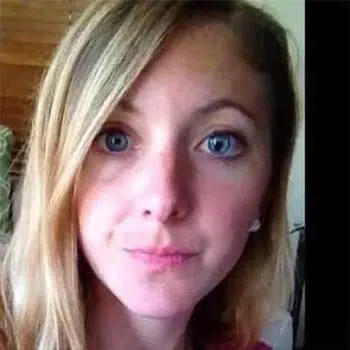The psychosis that alcohol can cause may worsen symptoms of schizophrenia. However, there is no evidence that alcohol directly causes the condition. While medical science has found a link between alcohol and schizophrenia, current research shows that underlying schizophrenia that was not previously noticeable may be made more obvious when alcohol is used. It can also cause symptoms that mimic the effects of schizophrenia.
What Is Schizophrenia?
Schizophrenia is a psychological condition that can cause several symptoms, including:
- Visual and auditory hallucinations
- Mood changes
- Cognitive deficits
- Decreased emotions
The most striking symptoms of schizophrenia are hallucinations and other signs related to psychosis. Alcohol use can worsen these psychotic symptoms.
To understand the relationship between alcohol and schizophrenia, it’s first important to know the symptoms of this mental health disorder:
This Season, Give Yourself the Gift of a Fresh Start.
Whether you are struggling with addiction, mental health or both, our expert team is here to guide you every step of the way. Don’t wait— reach out today to take the first step toward taking control of your life.
- Delusions (maintaining a false belief, even when presented with evidence it’s not true)
- Hallucinations (hearing, seeing, smelling, tasting or feeling things that are not present)
- Incoherent speech
- Odd or catatonic movements and behaviors
- Negative symptoms (lack of motivation, reduced pleasure with usual activities, social withdrawal, lack of speech)
Since alcohol can worsen both psychotic and negative symptoms of schizophrenia, it can make symptoms appear more severe. Furthermore, alcohol intoxication can cause brain changes that lead to symptoms of psychosis, worsening these symptoms in those with schizophrenia or causing schizophrenia-like symptoms to appear in those without mental health disorders.
What Is the Link Between Alcohol and Schizophrenia?
Schizophrenia is known to increase the likelihood of alcohol use. In fact, someone with a psychotic disorder like schizophrenia is three times more likely than someone in the general population to drink alcohol heavily. Alcohol also worsens the symptoms of schizophrenia, particularly psychosis.
When someone with mild schizophrenia drinks a lot of alcohol, they may develop more severe hallucinations or paranoia. While this only worsens the existing schizophrenia, it may look like alcohol use directly caused schizophrenia, especially when someone hasn’t been diagnosed.
Another potential reason for this link is that people with (usually untreated) schizophrenia may try to self-treat symptoms with alcohol or other substances.
What Are the Effects of Drinking Alcohol for Someone with Schizophrenia?
When someone with schizophrenia uses alcohol, it can have short and long-term effects. Schizophrenia is often treated with antipsychotics, which can have dangerous interactions with alcohol. For example, alcohol can increase the sedative and central nervous system (CNS) depressant effects of antipsychotic medications. In turn, this can lead to:
- Extreme sedation
- Low blood pressure
- Impaired coordination
- Difficulty concentrating
Short-Term Effects of Alcohol and Schizophrenia
In the short-term, alcohol use can often increase the severity of psychosis in someone with schizophrenia. This can include:
- Auditory or visual hallucinations
- Paranoia
- Increased risk of injury
- Violent behavior
Because someone with schizophrenia may show more severe symptoms of psychosis while under the influence of alcohol, their behavior may change. For instance, alcohol can increase levels of the brain chemical dopamine, which is already elevated among patients with schizophrenia. These increased levels may then lead to or worsen paranoia, delusions and hallucinations.
Long-Term Effects of Alcohol and Schizophrenia
When someone with schizophrenia misuses alcohol long-term, they may relapse or experience worsening symptoms. Likewise, someone whose symptoms have become manageable therapy may show psychotic symptoms again if they misuse alcohol.
Over time, if alcohol is used to self-medicate symptoms related to schizophrenia, a person may develop an alcohol use disorder (AUD), the clinical term for alcohol addiction. This can cause a worsening of mental health functioning as well.
Can Alcohol Misuse and Schizophrenia Be Treated Together?
Alcohol misuse and schizophrenia can be treated together. Treatment requires specialized resources from a rehab center that is adequately staffed and equipped to handle mental health conditions. In most cases, integrated treatment is the best option for co-occurring alcohol addiction and schizophrenia. This means both disorders are addressed at the same time.
It is estimated that about one-fourth of people with schizophrenia will develop or have AUD. Having a simultaneous mental health condition and substance use disorder (SUD) is referred to as a co-occurring disorder or dual diagnosis.
Co-occurring disorders treatment is complex, involving careful treatment of both AUD and schizophrenia. Unfortunately, many people with co-occurring disorders do not receive the necessary treatments.
Alcohol Detox With Schizophrenia
Detoxing from alcohol is an integral part of treating co-occurring disorders. But it may also be the most difficult part. Someone with schizophrenia should have medical supervision while detoxing from alcohol, as the detox process may worsen schizophrenia symptoms.
For anyone detoxing, doing so alone can be dangerous. Mild alcohol withdrawal symptoms like tremors and headaches may simply be unpleasant. However, more severe withdrawal side effects can be serious and even fatal. For example, severe alcohol withdrawal can cause seizures and a potentially fatal condition called delirium tremens (DTs). Fortunately, detox centers like The Recovery Village Columbus are equipped to treat mental health conditions and severe withdrawal symptoms.
Dual Diagnosis Treatment
Dual diagnosis rehab allows patients to receive treatment for alcohol cravings and develop coping skills for relapse prevention. The professionals at dual diagnosis treatment centers have the experience and training necessary to tell the difference between AUD and schizophrenia symptoms. They also know how to determine the correct treatments and therapies for these conditions.
The Recovery Village Columbus offers a wide range of treatment options, including medical detox, inpatient rehab, partial hospitalization programming and intensive outpatient services. Our staff is also trained in many approaches that can benefit dual-diagnosis patients. These therapies include cognitive-behavioral, dialectical behavior and neurocognitive therapy. Contact a Recovery Advocate today to learn more about how we can help.









